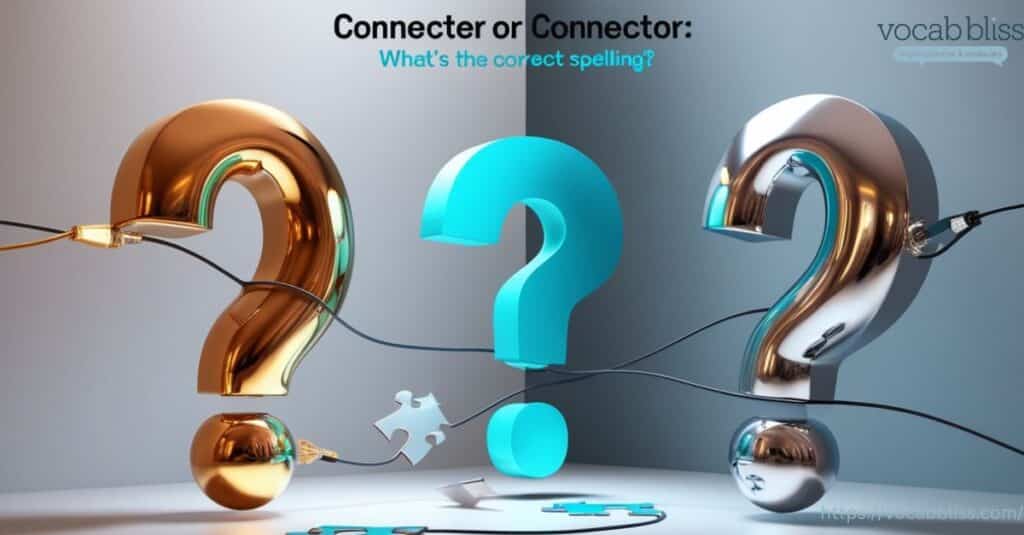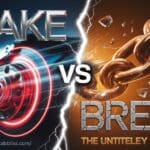When it comes to writing, correct spelling can be tricky, especially for words that have more than one accepted form or appear to be variants of each other. Connector or connecter are two such words that often leave writers scratching their heads. This article dives deep into the roots, modern usage, and correct context for these words.
⚡ Quick Summary
In modern English, “connector” is the correct and widely accepted spelling, recognized by major dictionaries and adhered to in contemporary writing. Originally derived from the Latin “connectere”, meaning to bind together, the term has since evolved through Middle English and gradually gained prominence over time.. While “connecter” appeared in historical texts and was once used interchangeably, it has become outdated and less preferred. “Connector” ensures clarity, consistency, and alignment with current language standards, making it the preferred choice for accurate and professional writing.
Understanding the Basics
Spelling Overview
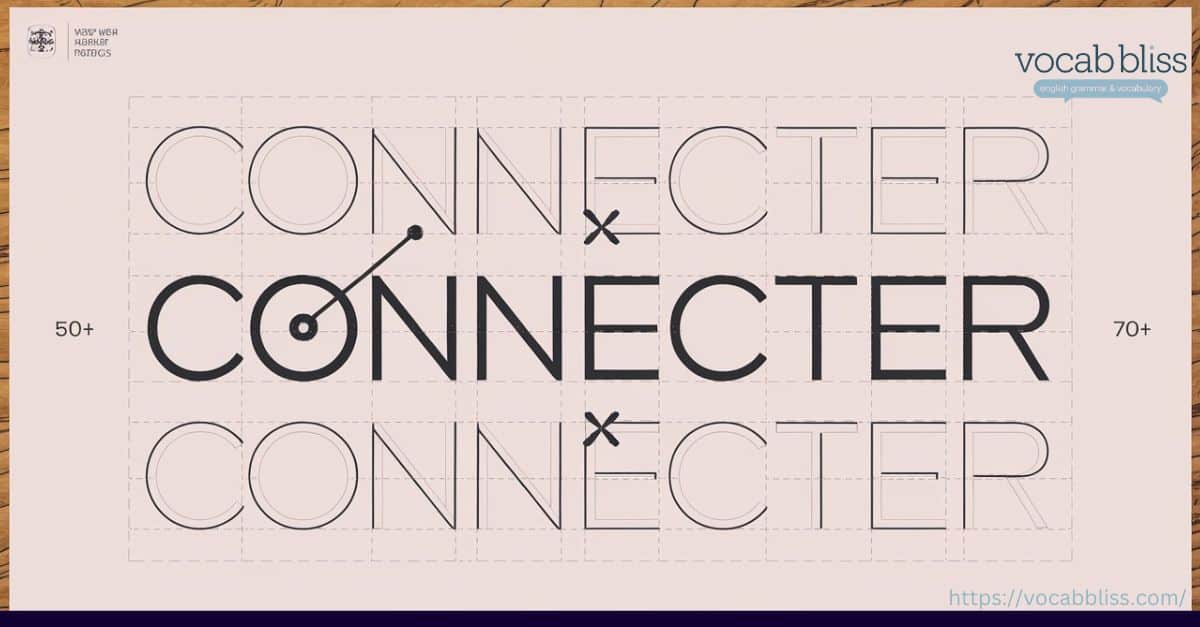
The confusion between connecter or connector primarily stems from historical variations in spelling. While both words have appeared in literature, connector has become the more commonly accepted spelling. Connecter is less frequently used and often perceived as an outdated variant.
Common Occurrences
You might see these spellings in different fields:
- Technical documents: References to USB connectors, HDMI connectors, and other hardware.
- Literature and reports: Occasional use in older texts.
- Instruction manuals: Variations depending on regional preferences.
Continue reading: Momma or Mama: Clearing Up the Confusion
Historical Background and Etymology
Origins of the Word
The word “connect” comes from the Latin term connectere, meaning “to bind together.” Additionally, the suffixes -or and -er were both adopted into English to denote agents or tools. As a result, this led to variations like connecter or connector.
Early Usage Examples
In early English texts, both connector and connecter appeared interchangeably. However, linguistic simplification and the standardization of spelling in the 20th century began to favor one form over the other. Connector became dominant as English moved towards more uniform spelling conventions.
Modern Usage Insights
Regional Differences
Connector is the standard spelling in both American and British English. Connecter, however, can still occasionally be found in specific contexts or regions that hold on to older spellings. A glance at digital publications and printed material overwhelmingly shows a preference for connector in:
- American English publications
- British technical manuals
- Educational resources
Industry-Specific Usages
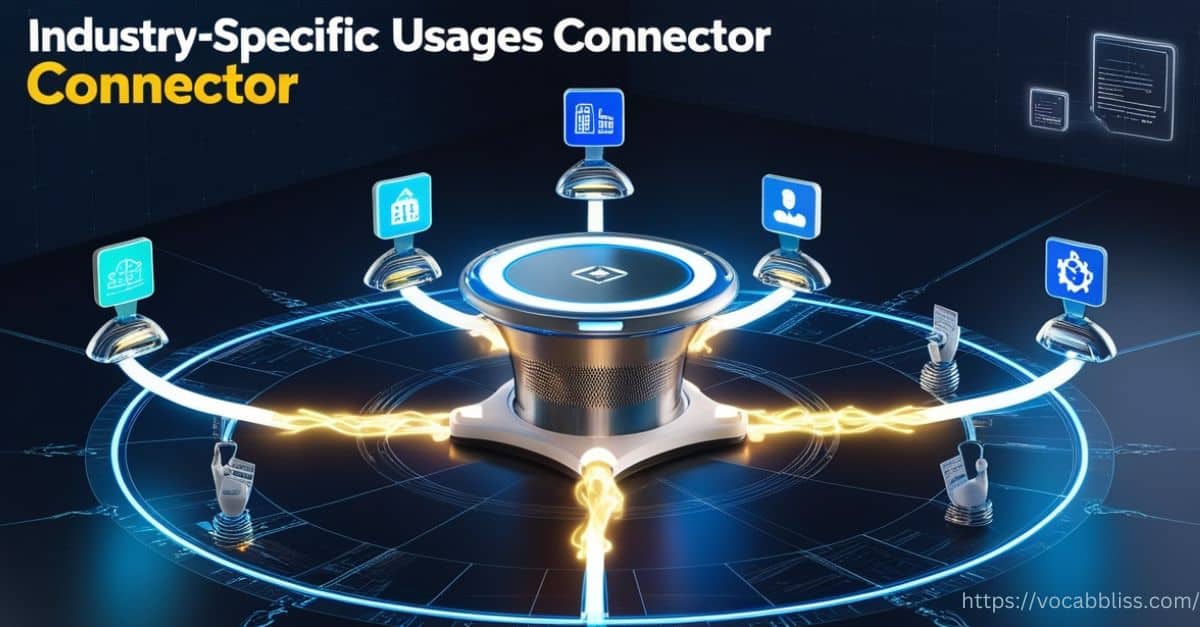
Connector is widely accepted across industries, particularly in technical and engineering contexts. You’ll often see:
- USB connector for computers
- Network connector for data cables
- Electrical plug connectors in wiring systems
Connecter, though rare, may appear in niche or historical documents.
Linguistic Shifts Over Time connector vs connecter
Language isn’t static. The shift towards the use of connecter vs connector exemplifies how linguistic trends align with simplification and global standardization. According to modern English dictionaries, connector is now the preferred term.
The Meanings Behind “Connecter or Connector”
Definitions and Applications
- Connector: Defined as a device or component that joins two or more items, allowing for the transfer of energy, data, or signals. Examples include:
- Electrical connectors used in wiring systems.
- HDMI connectors for media devices.
- Connecter: Although defined similarly, it’s now considered an outdated or less common spelling variant.
Examples of Use
Connector is frequently used in sentences like:
- “The USB connector facilitates the transfer of data between devices.”
- “An HDMI connector ensures high-definition signal transmission.”
Connecter, on the other hand, might appear in:
- “An older report detailed a connecter used in early communication devices.”
Preferred Usage: “Connector or Connecter”?
You should use “connector” for several compelling reasons:
Widely Accepted: The term “connector” is the standard spelling, widely recognized by major dictionaries and, therefore, favored in modern English usage.
Outdated Variant: “Connecter” is an alternative spelling that has fallen out of favor and is considered outdated by many dictionaries and language experts.
While both “connecter” and “connector” refer to something that links or joins two items, using “connector” ensures clarity and aligns with current grammatical standards.
| Aspect | Connector | Connecter |
|---|---|---|
| Definition | Refers to an object that joins or links two things. | Same meaning as “connector” – links items together. |
| Popularity | Predominantly used in modern English. | Less frequently used; somewhat outdated. |
| Clarity | Promotes clarity and grammatical correctness. | Can cause confusion due to infrequent usage. |
| Modernity | Aligns with contemporary language standards. | May seem outdated in current writing. |
| Acceptance | Widely recognized and easily understood by readers. | Less preferred in most writing contexts. |
Choosing “connector” guarantees that your writing is clear, modern, and consistent with standard spelling practices in English.
Why and How “Connecter” Became Outdated?
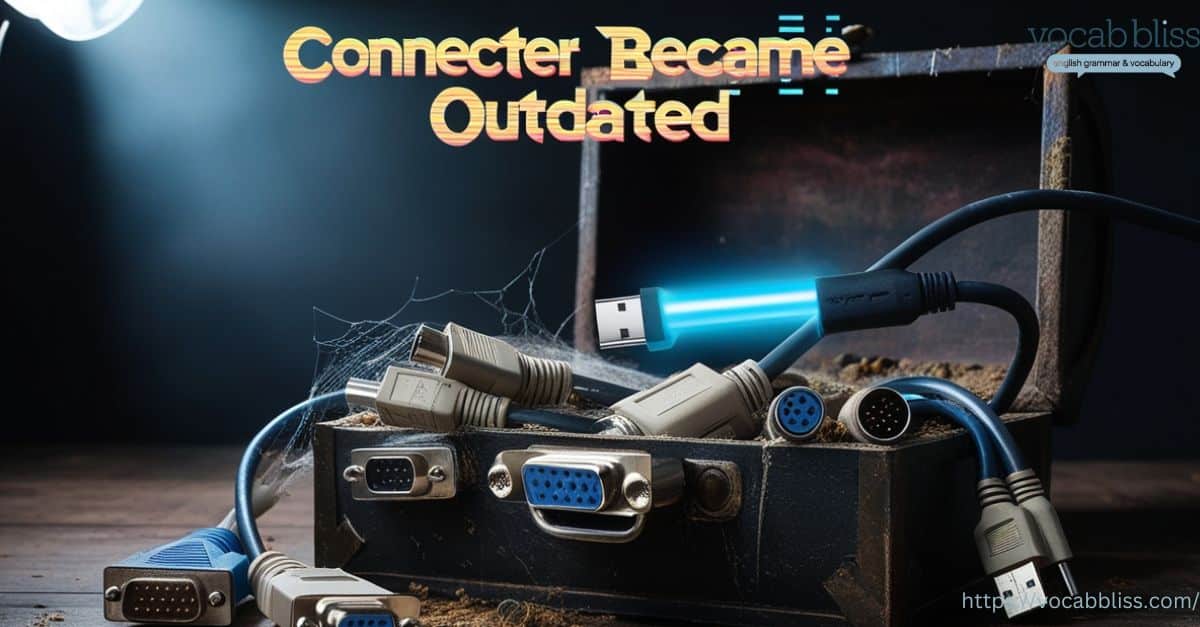
Language Simplification Trends
The gradual decline of connecter in favor of connector aligns with the overall trend of simplifying the English language. Just as adviser evolved into advisor in many contexts, the spelling connecter faded as connector gained popularity.
Comparative Analysis
Similar word evolutions include:
- Adapter vs. Adaptor: Both are correct, but adapter is more common.
- Adviser vs. Advisor: While both exist, advisor is more prevalent in the US.
| Word Pair | Dominant Form | Less Common Variant |
|---|---|---|
| Adapter/Adaptor | Adapter | Adaptor |
| Advisor/Adviser | Advisor | Adviser |
| Connector/Connecter | Connector | Connecter |
Influence of Dictionaries and Style Guides
Major Dictionaries’ Stances
- Merriam-Webster: Lists connector as the primary spelling, with connecter as an alternate.
- Oxford English Dictionary: Acknowledges connecter but highlights connector as standard.
Professional Writing Guides
The Chicago Manual of Style and AP Stylebook both recommend using connector for clarity and consistency.
Examples of “Connector” in Modern Context

Technical Fields
- USB connectors and network connectors are critical for computer connection and data transfer.
- HDMI connectors are used for seamless media interfaces.
Everyday Language
“Please attach the connector to the charging cable. In everyday usage, connector is widely seen as the default spelling for anything related to joining, linking, or interfacing.”
Synonyms and Alternatives
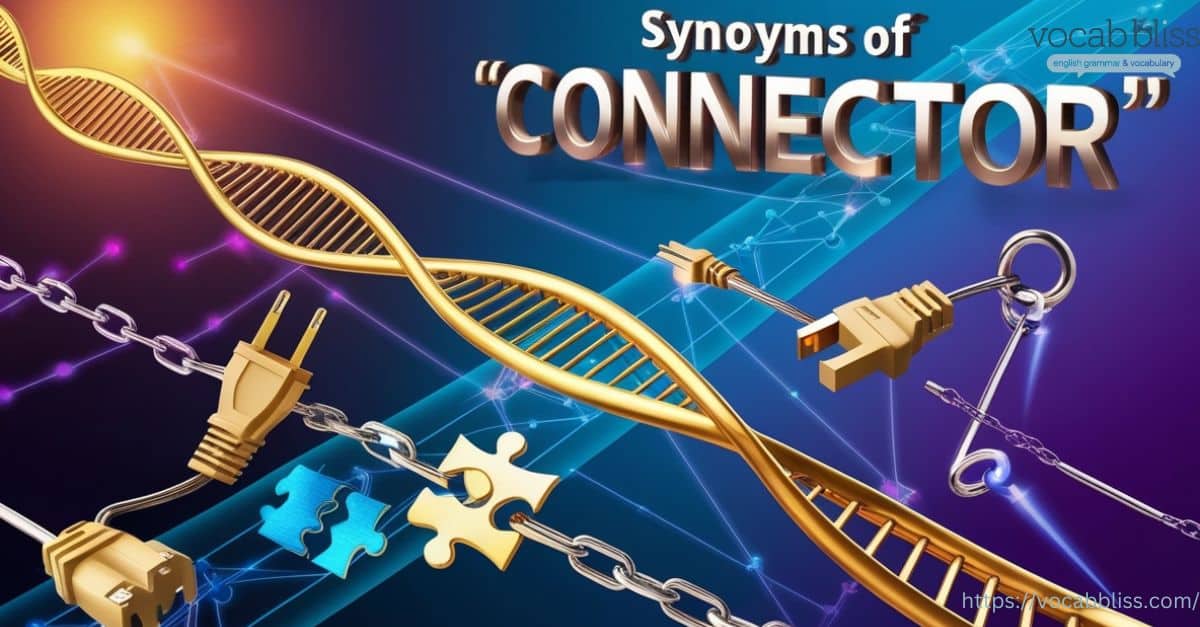
Related Words
When writing, consider these synonyms:
- Link: Used for a less technical reference, e.g., “a link between systems.”
- Joiner: More specific to objects joining, e.g., “a joiner for wooden parts.”
- Coupler: Often used in mechanical or electrical contexts.
- Interface: A more general term for systems that interact.
Use Cases for Synonyms of “Connector”
Understanding the context in which synonyms of “connector” can be used can greatly enhance clarity and precision in writing. Here are some common synonyms for “connector”, along with their use cases:
| Synonym | Use Case |
|---|---|
| Coupler | Mechanical or engineering applications |
| Adapter | Electronics and technology |
| Attachment | General attachments or add-ons |
| Interface | Technology, software, and user systems |
| Link | General connections, both literal and figurative |
| Joint | Construction, anatomy, carpentry |
| Junction | Electrical systems, transportation routes |
| Attachment Point | Safety equipment, modular systems |
| Linkage | Mechanical connections, biological systems |
| Fastener | Construction, hardware tools |
These synonyms and their specific use cases help in selecting the right term for accurate and clear communication based on the context of your writing.
Origins of the Word “Connector”
The word “connector” has roots in Latin and evolved through various stages of the English language, reflecting its function and usage over time. Consequently, understanding its origins provides insight into why it has become the standard spelling in modern English.
Latin Roots
The term “connector” originates from the Latin word “connectere,” where “con-” means together and “nectere” means to bind or tie. As a result, this etymology highlights the fundamental role of a connector as something that joins or binds parts together. Therefore, the word inherently reflects the idea of linking two or more components, whether physically or figuratively.
Entry into English
The word made its way into Middle English through Old French influences, where many Latin-derived words were adapted during the Middle Ages. The concept of connecting or joining two parts was essential in both practical and figurative contexts, supporting the use of this term in various aspects of life, from mechanics to social relationships.
Early Spelling Variations
Initially, spellings were not standardized, and you could find both “connector or connecter” in early texts. However, as English dictionaries and language standards developed in the 18th and 19th centuries, “connector” became the more commonly accepted form. This was partly due to the influence of Samuel Johnson’s dictionary and later, Noah Webster’s contributions to American English.
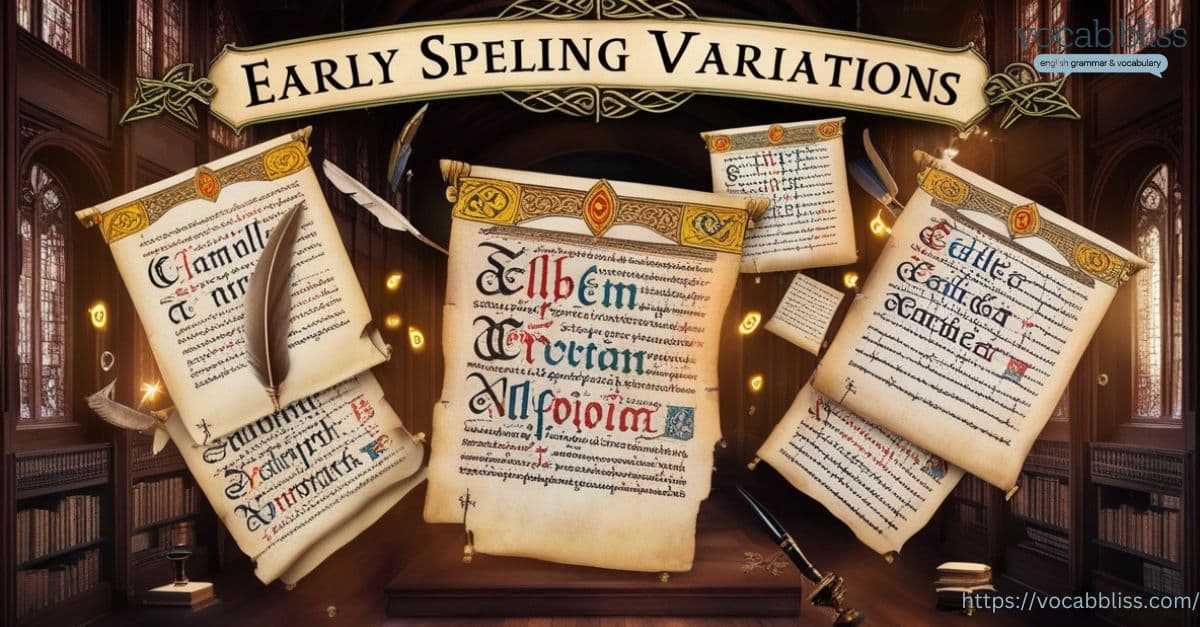
Modern Standardization
By the 20th century, “connector” had established itself as the standard spelling in both American and British English, cemented by its widespread usage in technical, mechanical, and electrical fields. The term became synonymous with devices and components that create a link between systems, such as USB connectors, network connectors, and electrical plugs.
“Connecter” as an Outdated Variant
The variant “connecter” did appear in earlier records and some dictionaries as an alternative spelling. However, it gradually fell out of common usage as the language evolved and became more standardized. Today, “connector” is the preferred form in contemporary writing and recognized in most modern dictionaries as the primary spelling.
Timeline of the Word’s Evolution
| Period | Development |
|---|---|
| Classical Era | Originated from Latin “connectere” |
| Middle Ages | Entered Middle English with varying spellings |
| 18th Century | Gained acceptance through dictionaries |
| 19th Century | Standardization began with English reformers |
| 20th Century | Became the dominant spelling in English usage |
The historical journey of the word “connector” demonstrates how language evolves and why certain spellings prevail over others. Its roots in Latin, coupled with a gradual shift toward consistency in English spelling, have solidified “connector” as the clear and correct choice in modern English writing.
Future Trends in Spelling Preferences
The Digital Age Impact
The push towards consistent spelling in digital content, such as online articles and programming manuals, further ensures that “connector” remains the dominant form. Additionally, tools like Grammarly and spell checkers often reinforce this by suggesting “Spell connector” as the preferred spelling.
Predicting Language Shifts
It’s unlikely “connecter” will see a resurgence, especially given the current standard spelling practices in modern English. Moreover, as digital trends and grammar tools continue to advance, uniform spelling is becoming increasingly entrenched.
Real-World Examples and Usage
Published Works
- Technical manuals: “The connector must be securely attached to ensure data transfer.”
- Engineering guides: “Select the appropriate connector for your wiring system.”
Regional Publications
Older technical documents or regional publications may show connecter, but this is rare. For most applications today, connector is the accepted spelling.
Conclusion
Final Recommendations
For anyone involved in writing, technical documentation, or general communication, connector is the correct and standard choice. While connecter has historical roots, its usage is largely outdated.
Key Takeaways
- Use connector in all modern contexts.
- Consult style guides like the Chicago Manual of Style for consistency.
- Connecter may still appear, but it’s considered obsolete.
Ensuring the use of the correct spelling not only helps maintain clarity but also aligns with modern writing standards and reader expectations.
This post ensures thoroughness with historical background, current usage, and practical guidance on the correct use of connector over connecter.
Explore further:
- Other Than or Other Then: Which One Is Correct?
- Excel vs Accel: Can You Spell It Right?
- Excell or Excel: Which Spelling is Accurate?
- Pronounciation Or Pronunciation: Which Is Correct?

Jorge Phillips is an experienced blogger who writes for Vocab Bliss, sharing his passion for the English language. With a knack for simplifying complex grammar rules and a focus on commonly confused words, Jorge helps readers navigate the nuances of English with ease. His insights aim to make learning engaging and practical.

